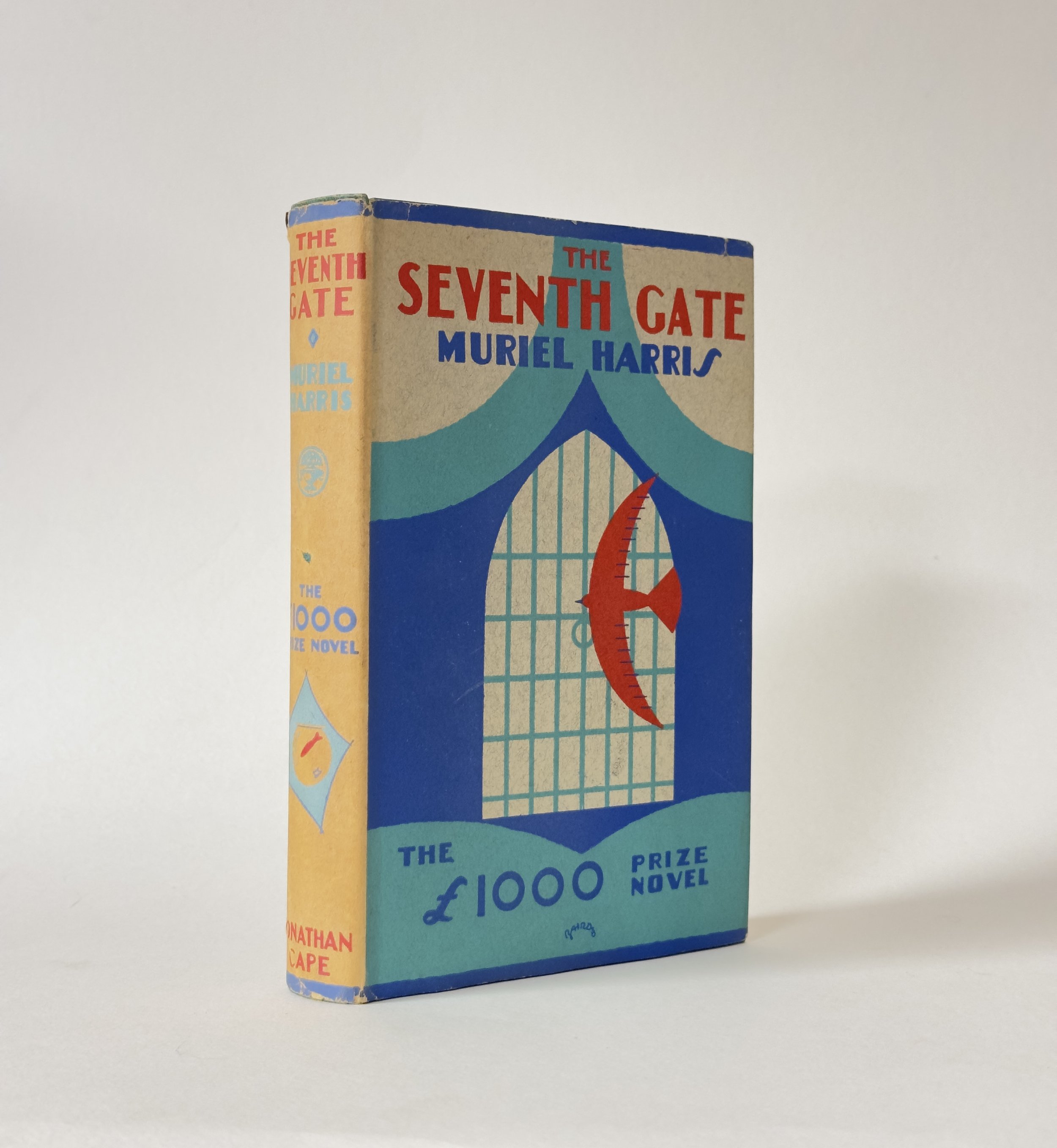 Image 1 of 5
Image 1 of 5

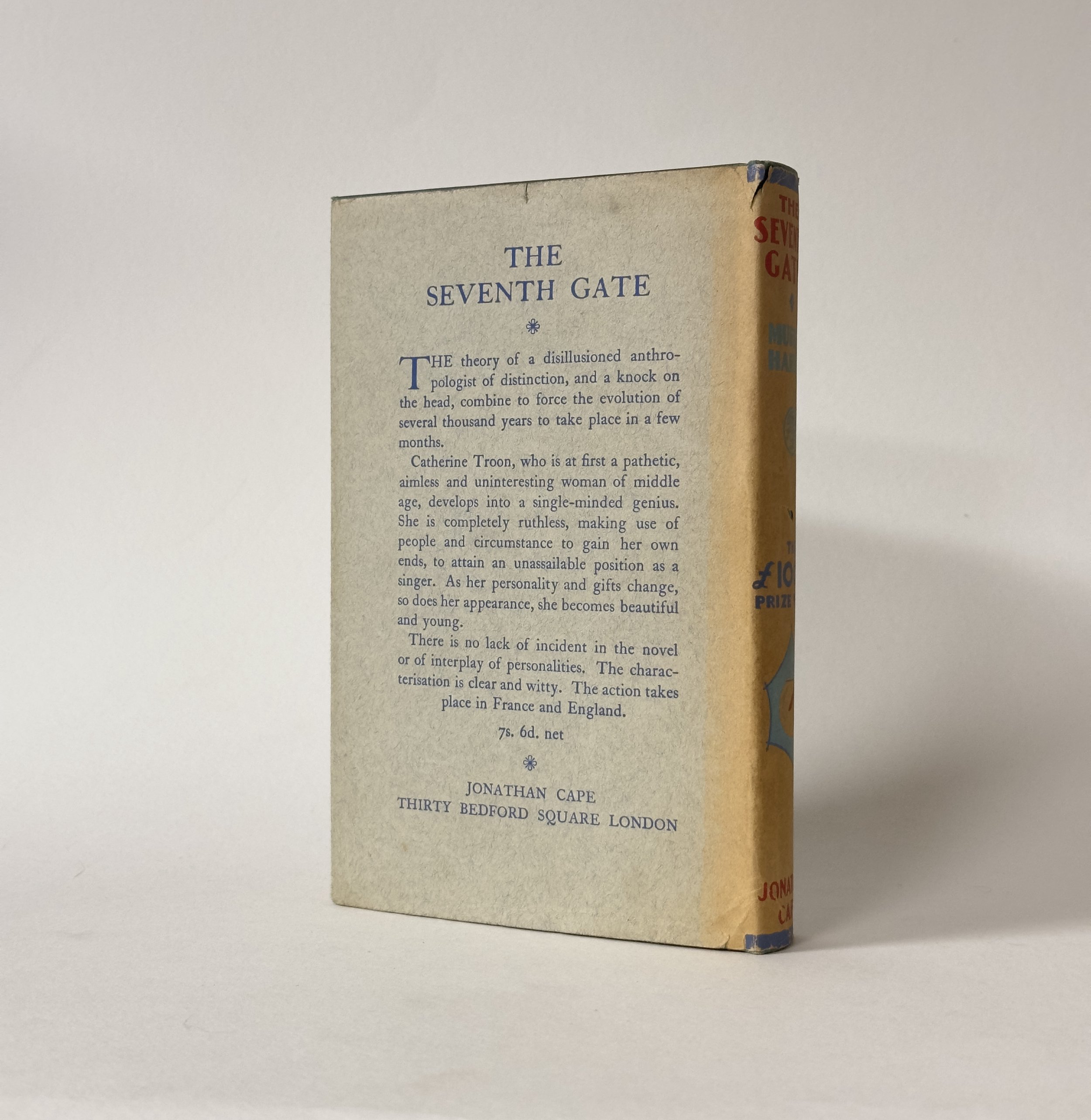 Image 2 of 5
Image 2 of 5

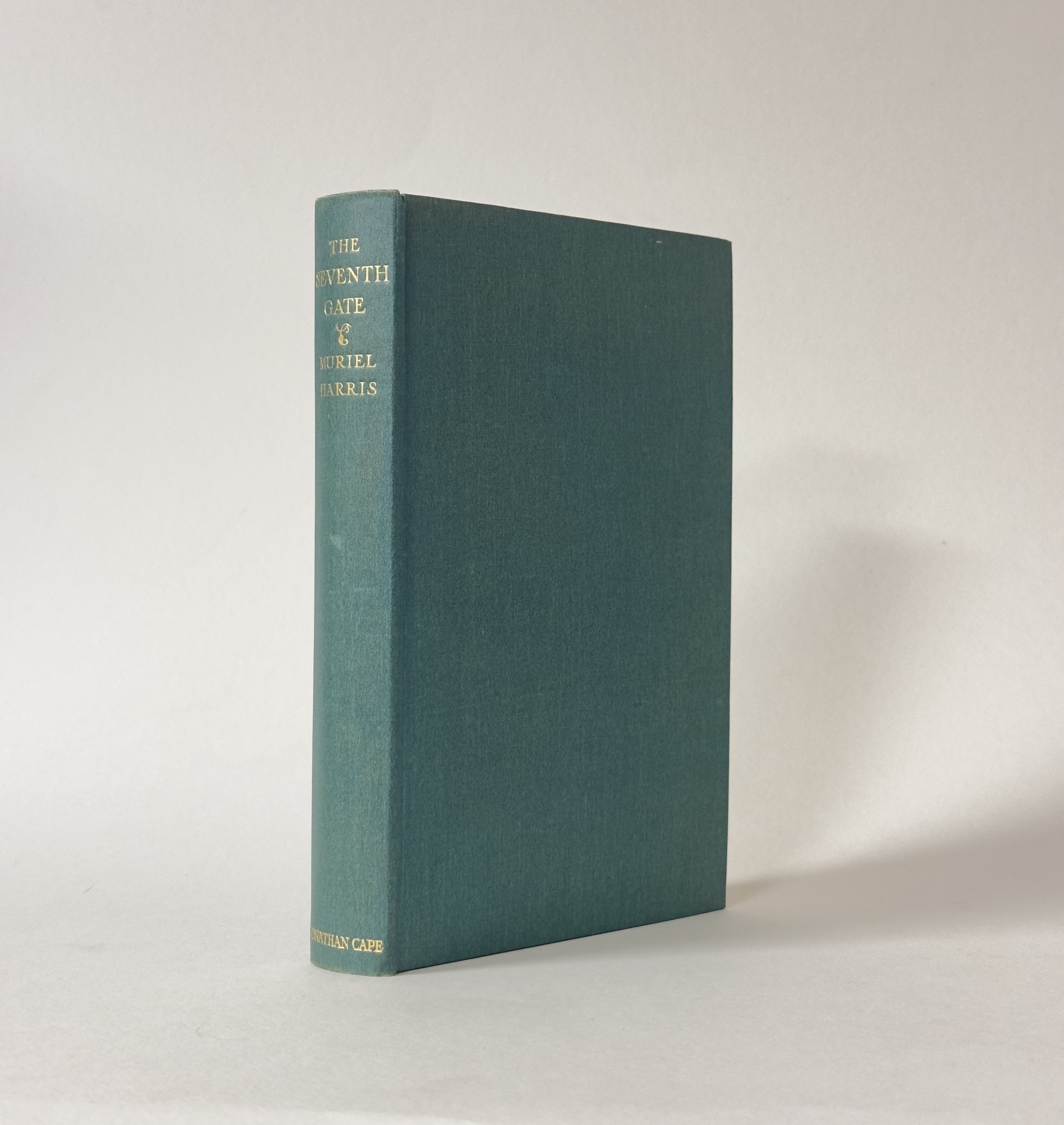 Image 3 of 5
Image 3 of 5

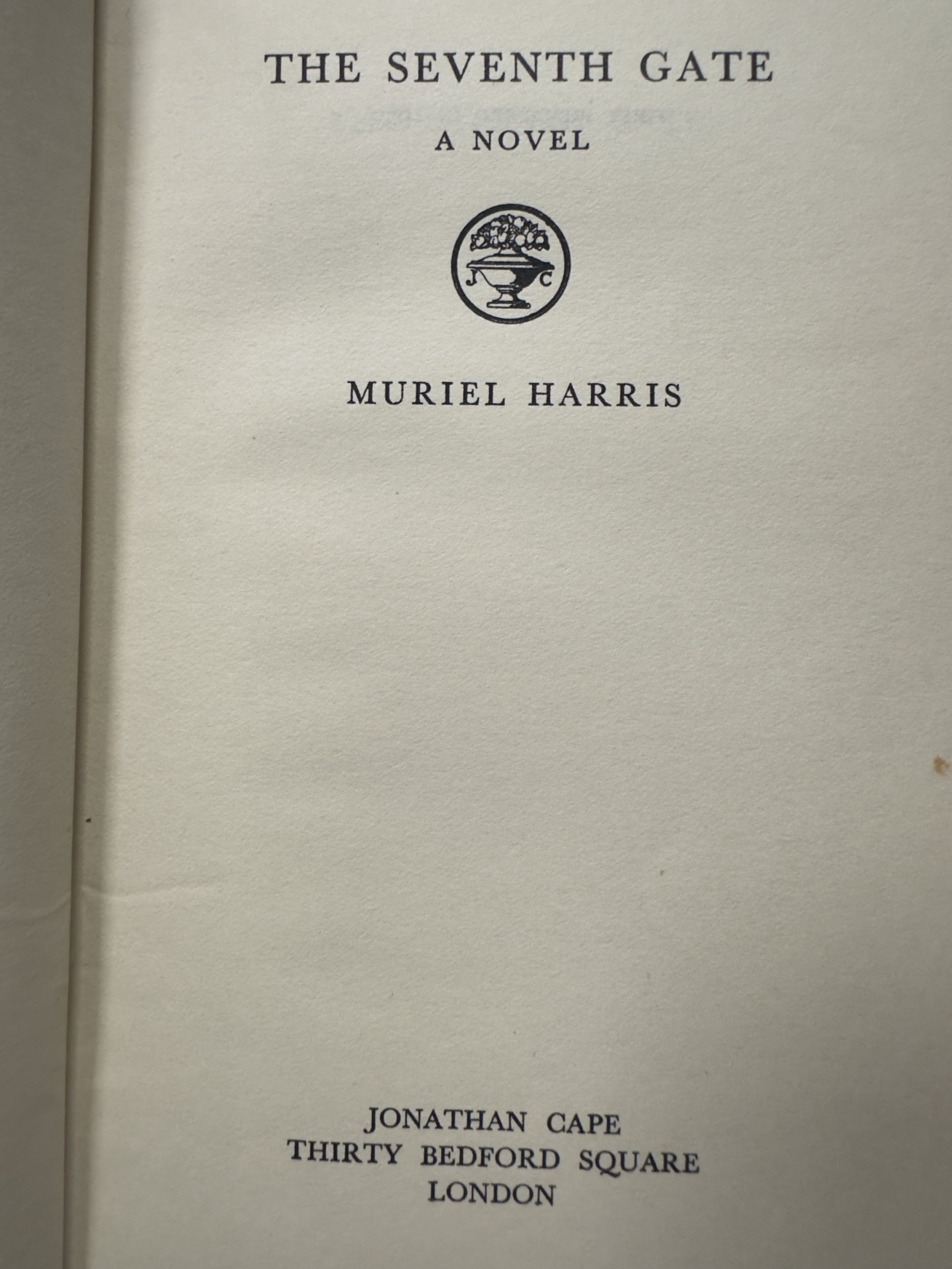 Image 4 of 5
Image 4 of 5

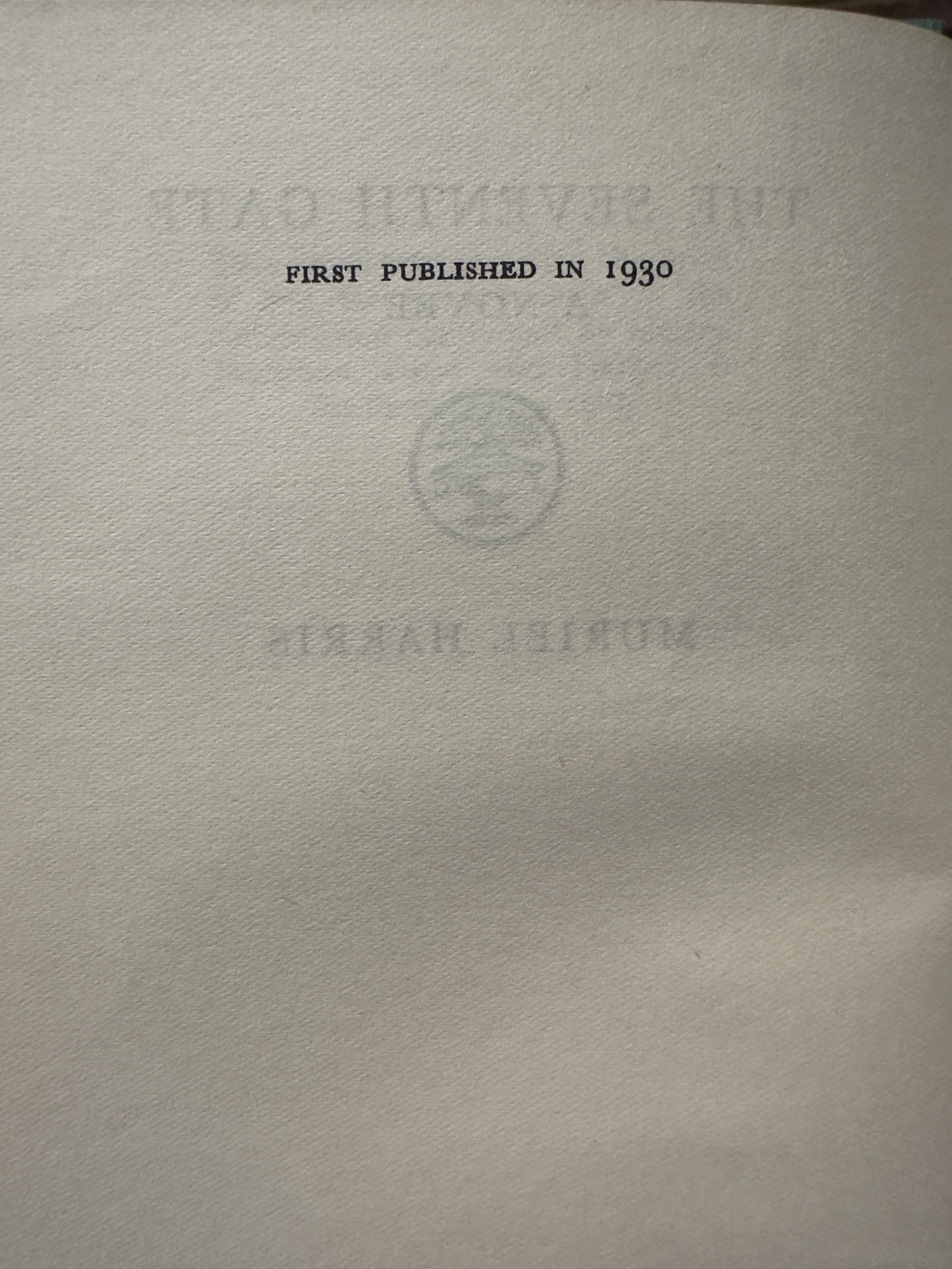 Image 5 of 5
Image 5 of 5






HARRIS, Muriel. The Seventh Gate
HARRIS, Muriel. The Seventh Gate. London: Jonathan Cape. 1930. 8vo. pp. 352. First edition. Publisher’s green cloth lettered in gilt to spine. Near fine, the binding tight with a very minimal lean, corners a trifle bumped, contents clean and fine but for a little offsetting to the final text page only. Small residue abrasion to front pastedown bottom edge and front endpaper, negligible. With the publisher’s order form postcard loosely inserted. The dust jacket wonderfully designed by Bairds[?] complete and unclipped (7s 6d net) with all four corners neatly cut. The spine panel a touch darkened with a small nick here, several corners, spine head and tail and one or two edges with some very short nicks and two tears, but an attractive copy overall and fresher than the previous copy we had in.
Harris was 50 when she published this, her first novel, and was supposedly immediately inspired by an article she had read by Julian Huxley on the displacements of sexual energy. In the novel, her character reads a similar article, and a doctor helps ‘sublimate her sex force’ as she becomes destined to make it as a singer, eventually beguiling the doctor and others. A triumvirate of Sheila Kaye Smith, Hugh Walpole, and Frank Swinnerton decided it the winner of the Jonathan Cape and Harper and Brothers cross-Atlantic £1000 Prize Novel of 1930, much to the disgruntlement of several critics who deemed Harris second-rate, the plot ‘impossibly fantastic’. Indeed, the publication in whole might well be some weird self-fulfilling prophecy; Harris seemingly published one other novel and left little to no biographical trace. Uncommon.
HARRIS, Muriel. The Seventh Gate. London: Jonathan Cape. 1930. 8vo. pp. 352. First edition. Publisher’s green cloth lettered in gilt to spine. Near fine, the binding tight with a very minimal lean, corners a trifle bumped, contents clean and fine but for a little offsetting to the final text page only. Small residue abrasion to front pastedown bottom edge and front endpaper, negligible. With the publisher’s order form postcard loosely inserted. The dust jacket wonderfully designed by Bairds[?] complete and unclipped (7s 6d net) with all four corners neatly cut. The spine panel a touch darkened with a small nick here, several corners, spine head and tail and one or two edges with some very short nicks and two tears, but an attractive copy overall and fresher than the previous copy we had in.
Harris was 50 when she published this, her first novel, and was supposedly immediately inspired by an article she had read by Julian Huxley on the displacements of sexual energy. In the novel, her character reads a similar article, and a doctor helps ‘sublimate her sex force’ as she becomes destined to make it as a singer, eventually beguiling the doctor and others. A triumvirate of Sheila Kaye Smith, Hugh Walpole, and Frank Swinnerton decided it the winner of the Jonathan Cape and Harper and Brothers cross-Atlantic £1000 Prize Novel of 1930, much to the disgruntlement of several critics who deemed Harris second-rate, the plot ‘impossibly fantastic’. Indeed, the publication in whole might well be some weird self-fulfilling prophecy; Harris seemingly published one other novel and left little to no biographical trace. Uncommon.
HARRIS, Muriel. The Seventh Gate. London: Jonathan Cape. 1930. 8vo. pp. 352. First edition. Publisher’s green cloth lettered in gilt to spine. Near fine, the binding tight with a very minimal lean, corners a trifle bumped, contents clean and fine but for a little offsetting to the final text page only. Small residue abrasion to front pastedown bottom edge and front endpaper, negligible. With the publisher’s order form postcard loosely inserted. The dust jacket wonderfully designed by Bairds[?] complete and unclipped (7s 6d net) with all four corners neatly cut. The spine panel a touch darkened with a small nick here, several corners, spine head and tail and one or two edges with some very short nicks and two tears, but an attractive copy overall and fresher than the previous copy we had in.
Harris was 50 when she published this, her first novel, and was supposedly immediately inspired by an article she had read by Julian Huxley on the displacements of sexual energy. In the novel, her character reads a similar article, and a doctor helps ‘sublimate her sex force’ as she becomes destined to make it as a singer, eventually beguiling the doctor and others. A triumvirate of Sheila Kaye Smith, Hugh Walpole, and Frank Swinnerton decided it the winner of the Jonathan Cape and Harper and Brothers cross-Atlantic £1000 Prize Novel of 1930, much to the disgruntlement of several critics who deemed Harris second-rate, the plot ‘impossibly fantastic’. Indeed, the publication in whole might well be some weird self-fulfilling prophecy; Harris seemingly published one other novel and left little to no biographical trace. Uncommon.
